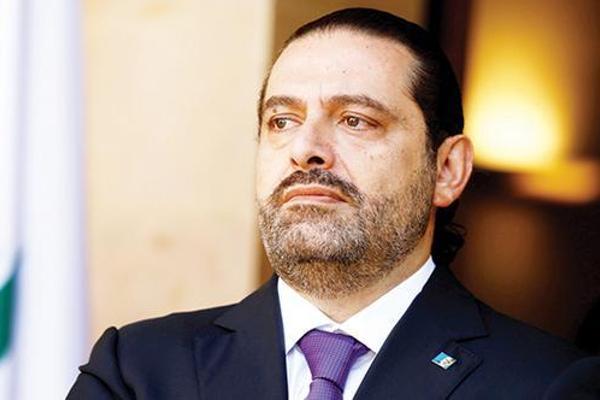Hariri says free in Saudi and will return home ‘soon’
BEIRUT - Agence France-Presse


Saad Hariri, whose resignation as Lebanon’s prime minister a week ago sent shockwaves across the region, said on Nov. 12 he is “free” in Saudi Arabia and will return to Lebanon “very soon.”
In an interview from Riyadh with his party’s Future TV, Hariri brushed aside rumors that he was under de facto house arrest in the kingdom, from which he announced his surprise departure.
“I am free here. If I want to travel tomorrow, I will,” Hariri said.
“I will return to Lebanon very soon,” Hariri said, adding later that he would land in Beirut “in two or three days.”
Hariri, 47, announced he was stepping down from his post in a televised address on November 4 from Riyadh, and has yet to return to his native Lebanon.
However, Lebanese President Michel Aoun has yet to formally accept his resignation and said the premier has been “restricted” in his movements.
Hariri’s surprise resignation came as tensions rise between Riyadh and Tehran, which back opposing sides in power struggles from Lebanon and Syria to Yemen.
At the time, Hariri accused Iran and its Lebanese ally Hezbollah of taking over his country and destabilizing the broader region.
“We cannot continue in Lebanon in a situation where Iran interferes in all Arab countries, and that there’s a political faction that interferes alongside it,” he repeated on Nov. 13 in apparent reference to rival movement Hezbollah.
Meanwhile, the Arab League will hold an extraordinary meeting on Nov. 19 at the request of Saudi Arabia to discuss “violations” committed by Iran in the region, according to a memorandum.
Bahrain and the United Arab Emirates supported the Saudi request, which was also approved by Djibouti, the current chair of the pan-Arab bloc, said the document shown to AFP by diplomats on Nov. 12.
According to the memo, the Saudi request for an Arab League meeting was based on a missile the Sunni-ruled kingdom says its air defenses intercepted near Riyadh after being fired from Yemen on November 4.
A Saudi-led coalition has been battling Shiite Huthi rebels in Yemen, and it has accused the Iran-backed rebels of firing the missile.
Saudi Arabia’s powerful Crown Prince Mohammed bin Salman later accused Iran of “direct military aggression” against the kingdom by supplying the rebels with ballistic missiles.
